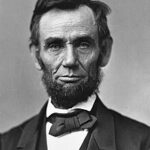Abraham Lincoln’s Emancipation Proclamation represented one of America’s most strategically calculated wartime decisions. The proclamation freed slaves only in Confederate territories actively rebelling against the Union. ⚠️ Notably, it left slavery intact in Delaware, Kentucky, Maryland, and Missouri – loyal border states crucial to Union victory.
The Strategic Decision
Lincoln carefully crafted the Emancipation Proclamation limited scope to serve military objectives. The proclamation applied only to areas “in rebellion against the United States.” This excluded Union-controlled territories where Lincoln possessed actual authority to end slavery immediately. Critics argued this revealed political calculation over moral conviction.
Border State Calculations
The decision preserved slavery in four border states essential to Union strategy. 💰 These states provided crucial manpower, resources, and geographic advantages. Lincoln feared that immediate emancipation might push these states toward the Confederacy. His approach prioritized military victory over complete abolition.
Constitutional Justification
Lincoln justified the Emancipation Proclamation limited application through wartime powers. He claimed authority to free enemy property but not to abolish slavery in loyal states. 📊 This legal reasoning satisfied some supporters while disappointing radical abolitionists who demanded comprehensive action.
Impact:
The Emancipation Proclamation’s limited scope generated significant immediate and long-term consequences across multiple dimensions of American society. Critics labeled Lincoln’s selective approach as morally inconsistent and politically opportunistic.
Political Ramifications
🔥 The proclamation’s restrictions sparked fierce debate among Lincoln’s allies. Radical Republicans criticized the president for prioritizing military strategy over human rights. Conservative Democrats attacked the measure as unconstitutional overreach. Border state politicians felt betrayed by the implicit threat to their institutions.
Military Consequences
The selective emancipation policy achieved mixed military results. It encouraged slave rebellions in Confederate territories while maintaining border state loyalty. However, the Emancipation Proclamation limited reach created confusion among Union commanders. Some generals struggled to implement inconsistent policies across different regions.
International Reactions
🌍 European powers initially viewed Lincoln’s proclamation skeptically. British leaders questioned America’s commitment to universal human rights. French officials noted the policy’s strategic limitations. However, the measure gradually shifted international opinion toward supporting the Union cause despite its restricted scope.
Long-term Historical Impact
📉 The proclamation’s limitations created lasting constitutional and social tensions. Complete abolition required the Thirteenth Amendment two years later. The selective approach established precedents for gradual rather than immediate social reform. Modern historians continue debating whether Lincoln’s cautious strategy ultimately helped or hindered the cause of human freedom.
